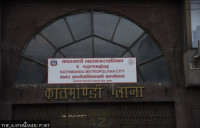Valley
Experts call for better definition of rape in Criminal Code Bill
The Criminal Code Bill should not use the phrase “forcible sexual intercourse”, to mean rape, but should instead define it as one of the acts that constitutes rape, said legal experts on Sun
Both the Bill, currently in Parliament, and the Muluki Ain, the penal part of which the Bill will replace, have chapters called “forcible sexual intercourse” (jabarjasti karani). None of them use the word “balatkar” to mean rape. “The word ‘karani’ means penetration of the vagina. If we limit rape to that definition, other forms of sexual assaults will remain unpunished. Thousands of cases currently go nowhere as the judges look for evidence of penetration,” said Yubaraj Sangroula, professor in-charge at the Kathmandu School of Law. Sangroula was sharing the findings of interactions with 88 legal experts, including current members of Parliament, on Sunday.
Realising that the definition of “forcible sexual intercourse” in Muluki Ain is too narrow, drafters have broadened it in the Criminal Code Bill to include oral, anal and partial penile penetration. Even then, experts believe that other forms of sexual offence—such as non-penile penetration, where foreign objects or other parts of the body are used; and derivations of sexual pleasure via other means like masturbating to a woman—are not covered.
Reliance on penile penetration to mean rape has also forced the judges to look for evidence of ejaculation on a victim’s body, Sangroula said.
Apart from the signs of ejaculation, prosecutors also look for visible signs of struggle on the victim’s body to prove that the sex was without the consent of the victim. “We should understand rape not in terms of power, but in terms of the violation of a person’s privilege to enjoy sex. To equate absence of bruises on a woman’s body with her consent is problematic,” Sangroula said. Constituent Speaker Subash Nembang said lawmakers were taking the Bill seriously.




 23.29°C Kathmandu
23.29°C Kathmandu










